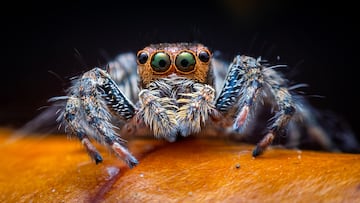Hawaii emergency rescue workers save hiker after dangerous spider bite caused fever and cramps
A hiker was airlifted out of a Hawaiian trekking route after being bitten by a dangerous spider.


A 57-year-old local hiker on the remote Kalalau Trail on Kauai’s famously rugged North Shore found himself in serious trouble after a bite from a small spider turned into a rapidly escalating medical emergency.
According to the Kauai Fire Department, he texted 911 on the morning of 29 October reporting an escalating infection, fever, and muscle weakness, all tied to said bite from the eight-legged beast.
The Kalalau Trail is a 22-mile round-trip between Keʻe Beach and Kalalau Beach and is known for its breathtaking natural beauty, but, crucially in this case given the key presence of a dangerous animal, also for its remoteness and difficulty of access.
According to the news release, KFD personnel found the hiker able to walk but visibly in distress. With medical assessment underway, he was air-evacuated by helicopter to a softball field in Waimea on the island’s southern side, then transferred to local hospital care for further treatment.
The Hawai‘i Department of Health identifies two spider species in the islands capable of inflicting significant harm: the female southern black widow and the brown widow.
The venom of the black widow operates by attacking nerve endings in muscle tissue, triggering severe pain and cramps that may spread body-wide. Although bites from brown widows are typically less severe, they can still produce noticeable redness, blistering and swelling.
Related stories
The Hawaii Department of Health writes on its website: “Though rare, spider bites do occur. Your risk of being bitten increases if you live in areas where there is clutter and debris or if their habitat has been disturbed. Widow spiders prefer warm climates and dark, dry places.” At the time of writing, the condition of the victim is unknown.
Get your game on! Whether you’re into NFL touchdowns, NBA buzzer-beaters, world-class soccer goals, or MLB home runs, our app has it all. Dive into live coverage, expert insights, breaking news, exclusive videos, and more – plus, stay updated on the latest in current affairs and entertainment. Download now for all-access coverage, right at your fingertips – anytime, anywhere.


Complete your personal details to comment